article_detail
Spanish News Today Editors Roundup Weekly Bulletin Nov 19

CLICK HERE FOR THE FEATURE ARTICLES "Truck drivers’ strike fizzles out" and "There’s a new tax to pay in Spain from January 2023"
On the week when the world population apparently reached 8 billion people (how do they even measure that?!), Spain confirmed that it was taking measures to top up its rapidly emptying pension fund. What with an ageing population and the baby boomer generation about to hit retirement age, they need to boost those coffers, and what better way than by taxing working folk for the next ten years?
Probably not a good way to get on the workers’ good side, but then again the unions didn’t get as much support as they were expecting for their transport sector strike. The dreaded strike situation, which was supposed to empty supermarket shelves and bring the country to a screeching halt, has pretty much come to nothing, for now at least.
Strike? What strike?
With Black Friday just around the corner and Christmas looming large on the horizon, news of the second truck driver strike of the year sent consumers and distributors alike into a mini frenzy, with talk of a serious supply crisis at one of the most important times in the calendar.
Self-employed truckers, represented by the National Platform for the Defence of the Transport Sector, stopped their engines on Monday November 14 for an indefinite strike on the basis that the agreements made with the government during the last bout of industrial action in March aren’t being complied with, leaving workers in “practically” the same situation as at the beginning of the year.
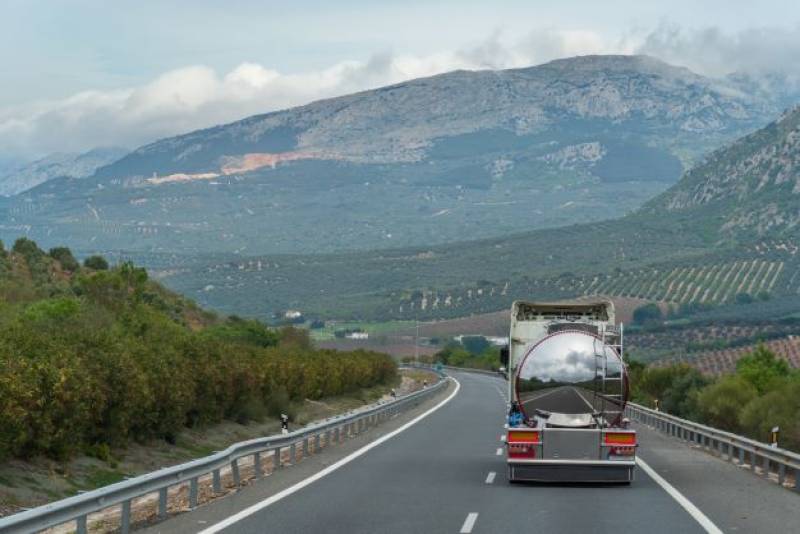 The historic strike that took place in March lasted for 20 days and caused supply chain problems in several areas of the country. Ultimately, several measures were agreed upon, including a fuel subsidy of 20 cents per litre, 450 million euros in aid for the sector and a legal guarantee that carriers would not have to work at a loss.
The historic strike that took place in March lasted for 20 days and caused supply chain problems in several areas of the country. Ultimately, several measures were agreed upon, including a fuel subsidy of 20 cents per litre, 450 million euros in aid for the sector and a legal guarantee that carriers would not have to work at a loss.However, Manuel Hernández, spokesperson for the platform and leader of the strikes, insisted that the law “is not being respected”. He and his cohorts demanded that the government implement a formal inspection plan to monitor compliance with the legislation, as well as tougher sanctions for companies who hire truckers under illegal conditions.
The Spanish government waited on tenterhooks to see if the Platform would gain the same level of support it did last March from other sectors but in an unexpected twist, the representatives of the drivers called off the strike just 24 hours after it began.
According to the Platform, the action has been called off due to a lack of general support and a “campaign” against the action from its main clients, the shippers, as well as business owners, unions, several political parties and some of the mainstream media.
In March, the strikes created a tense and often fraught rift between those self-employed drivers who downed tools and those who wanted to continue working and this time around, the group claims it has faced a “relentless campaign of harassment and take-down” since the stoppages began.
For now, at least, truckers are back on the roads, but the Platform insisted that it will continue “against all odds defending and fighting” to improve working conditions in the sector.
How to retire at 52 (and how to pay for that pension, too!)
Have you ever dreamed of retiring early and spending your golden years kicking back on your Spanish terrace by the pool? Maybe retire at 62 instead of 65? Or at 60?
How about retiring at 52 years old? Sounds impossible, right? But believe it or not there’s actually a little-known loophole in the Spanish pensions and unemployment benefits system that most people don’t know that will let you ‘retire’ at 52.
 Okay, so it’s not actually retirement. It’s actually a form of unemployment benefit which you can claim from the age of 52 onwards if you lose your job. But here’s the crucial bit. It’s the only such unemployment benefit in the country which will also pay into your pension fund until you reach either retirement age or early retirement age, which, depending on how many years you’ve paid your social security contributions having worked in Spain, could be between 61 and 66 years old.
Okay, so it’s not actually retirement. It’s actually a form of unemployment benefit which you can claim from the age of 52 onwards if you lose your job. But here’s the crucial bit. It’s the only such unemployment benefit in the country which will also pay into your pension fund until you reach either retirement age or early retirement age, which, depending on how many years you’ve paid your social security contributions having worked in Spain, could be between 61 and 66 years old.Of course, if you take early retirement, even with this unemployment benefit, the amount of monthly pension you get will be affected, and you also have to have worked in Spain before and paid your social security.
But who’s going to pay for all this? The truth is that the state pension fund in Spain is severely depleted. An ageing population and high levels of unemployment, combined with the imminent retirement of the baby boom generation, mean the pension reserve fund is practically empty.
That’s why Spain has decided it is necessary to introduce a new tax as of 2023, which will affect more than 20 million people who are self-employed or working employed on a contract basis for a Spanish company. Workers will have to pay the new tax, known as the Intergenerational Equity Mechanism (‘Mecanismo de Equidad Intergeneracional’ or MEI for short), starting this January.
The new tax will be applied as a new contribution concept, so that people who are registered in the Social Security will see their salaries reduced by 0.6%. The government hopes to raise around 22,000 million euros by 2032, when the new tax is scheduled to end. Out of the total amount payable, employers will contribute 0.5% and workers will pay the remaining 0.1%. In the case of people who are self-employed in Spain, trade unions calculate that the average payment will be around 5 euros per month.
All worth it in the end when you get to retire though!
Getting ready for winter

As the weather begins to get drearier, darker and in general just more like what we normally expect from this time of year, it’s time to ask… are you really prepared for the cold weather? So many people move to Spain thinking it’s the entire year round, which couldn’t be further from the truth, even in the south and the Canary Islands.
So you really do need some form of heating, but what’s the best way to heat a Spanish home? A lot of traditionally built homes don’t have central heating built in, and so for these people often favour log fires and wood or pellet burners. But these can be messy, expensive to run and don’t actually do anything about providing the house with hot water.
Another way to go is to get air conditioning which blows out both hot and cold air, meaning it will serve for both summer and winter, and many people actually prefer this option, but again, it does nothing to solve your hot water problems.
For central heating, then, which is basically the best way to get the best of all worlds, the two most popular options are oil-fired and gas-fired. This will effectively give you what you are used to from back home – unlimited heating and hot water; and temperatures and times set by a digital time clock allowing multiple settings to maximise efficiency. You do, however, have to be aware of the need to buy gas or oil, as the case may be, and ensure the tank is filled up or the cannister replaced regularly.
These are just a few of the possible options, so when it comes to preparing your house in Spain for the winter be sure to do your research properly and see what works for you and your needs.
Wine & dine
There’s nothing quite like a good glass of Spanish red. We all know Spanish wines taste great, but how much do any of us really know about the vast and varied world of wine in Spain? Sure, you might go to a bar and know whether you prefer a glass of Ribera or Rioja, but did you know that almost every region of the country grows its own variety of grapes and has a unique soil and climate that make Valencian wines so different from Galician wines, for instance?

Spain actually grows more grapevines than any other country worldwide, and only France and Italy produce more wine from their grapes. The top grape-growing, wine-manufacturing regions and sub-regions of Spain include, of course, Ribera del Duero and La Rioja in the north. But the rest of the autonomous community of Castilla y León, of which Ribera form just a small part, also produces the one-of-a-kind Mencia grapes and wine in its little-known El Bierzo area.
Then there’s rain-sodden Galicia in the far northwest, of course, which produces its signature white Albariño wine, as well as wines like the Fedellos do Couto, made from the Bastarda grape which comes from Portuguese origin, just across the border. Meanwhile, Catalonia, Valencia and Navarra all benefit from their proximity to France, using mixtures of Monastrell, Grenache, Carignan and Cabernet Sauvignon grapes with traditional Spanish Tempranillo.
So if you’re looking for something a bit different to spice up your Christmas dinner table or to give as gifts this year, it’s not too early to start thinking about buying in some of these lesser-known varieties of Spanish wine to wow your friends and family.
Murcia
Interesting developments in the property sector in Murcia this week, as two luxury hotels, the Mar Menor Golf de Torre Pacheco and Hacienda del Álamo resorts in Fuente Álamo, are sold by the so-called ‘bad bank’ Sareb, which is an asset management company which was set up after the real estate crisis of 2008 in Spain to buy up toxic assets of the banking system.
After managing them for more than a decade, Sareb has now sold these two mythic Murcia hotels to private buyers, explaining that they require “specialised management” that they cannot provide themselves.
The new owners have not yet been named publicly due to a non-disclosure agreement, but the real question is whether the hotels will now be reopened under new management. While the apartments at the Hacienda del Álamo are open, no access is possible to the hotel facilities.
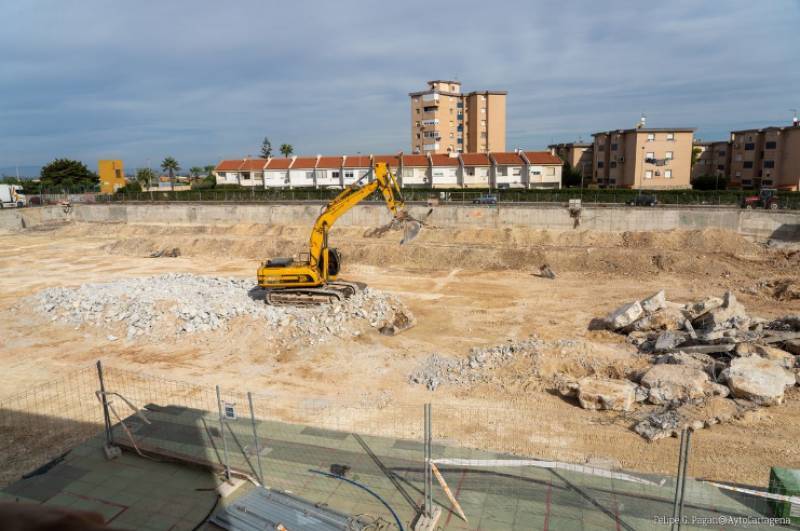
Meanwhile, more facilities are set to go up in Cabo de Palos in the coming months with the construction of a new Mercadona superstore, one of the largest in the whole of Spain, to be built on the site of the soon-to-be-opened Las Dunas Commercial Centre.
The new ‘MerccyD’s’ will cost a whopping 5.2 million euros to build, and the 4,500 square metre building should be complete within 11 months. The only worry is that the new megastore will mean the closure of the existing Mercadona supermarket in Cabo de Palos, which is popular with local shoppers.
In other news, police are hunting a gang of armed robbers they believe are behind a series of assaults, including that of a restaurant in Los Alcázares, a confectionery store in San Pedro del Pinatar and other recent robberies in the Campo de Cartagena area.
The three men enter their targeted establishments with hoods up and armed with sticks. In their most recent robbery, of the Venta Puerto 3 in Los Alcázares this week, they forced their way in and assaulted a lone member of staff, threatening to kill him before fleeing with the money from the cash register, cigarette machine and slot machine.
The one and only member of staff who was in the place, watching videos on his phone when the men burst in through the front door, managed to escape through the kitchen door and called the police, but the trio had already fled in an unidentified vehicle. Anyone who has information that could help police with their investigation should contact the Guardia Civil.
Finally, as we creep ever closer to the Christmas period, it’s time to dust off those old carolling song sheets and enjoy some good, old-fashioned Crimbo singalongs. And who better to do it with than the ever-popular ladies’ harmony chorus, Spangles? Here’s their full roster of events and concerts in Murcia and Alicante this Christmas period!
And there’s loads more going on in Murcia—see our EVENTS DIARY:
Spain
The busy bees at the DGT are relentless at introducing new rules and regulations in a bid to make the Spanish roads safer, and this week is no exception with a complete overhaul of the outdated, and often rather confusing, traffic signs which decorate our highways and byways.
Some of the old reliables have received a facelift: the old-fashioned sign featuring a 19th century train will be replaced by a modern design aimed at warning of a level crossing not protected by barriers. However, there will be some new additions in 2023, too.
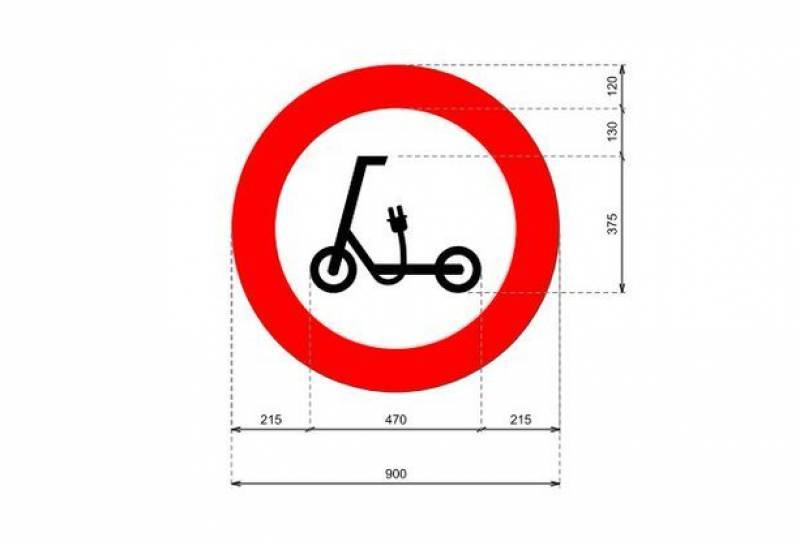 A novel sign featuring an electric scooter will be placed on roads where these mobility vehicles aren’t allowed to circulate, and a placard featuring a (fairly decrepit-looking) pair of older people will warn drivers of proximity of a place frequented by the elderly, such as a nursing home, day centre etc.
A novel sign featuring an electric scooter will be placed on roads where these mobility vehicles aren’t allowed to circulate, and a placard featuring a (fairly decrepit-looking) pair of older people will warn drivers of proximity of a place frequented by the elderly, such as a nursing home, day centre etc.As well as responding to modern-day road safety issues, the authorities want the signs to be more visible and with fewer “gender connotations”. To this end, the pictograms have been updated and certain signals, like the one warning of children crossing, will soon feature both a girl and a boy.
Although the new road signs have already been designed by the General Directorate of Traffic (DGT), there doesn’t seem to be any push to implement them and it’s unlikely they’ll hit the Spanish roads before the middle of 2023.
From road signs to road tests, the authorities this week have reminded motorists in Spain that not only are they allowed to bring their vehicle in for the Technical Inspection of Vehicles (ITV test) up to 30 days early, but that this actually holds a distinct advantage.
If you book your car in for its ITV up to one month ahead of schedule, you won’t lose any of the original validity period. So, for example, let’s say your car is 10 years old and the ITV test is due on November 1. If you have it tested some time in October, your new sticker will still be valid until November 1 the following year.
The major benefit of passing your ITV test within this 30-day grace period, aside from maintaining the same original period of validity, is that you reduce the risk of forgetting or having to postpone your appointment and facing an unwanted fine.
Finally, great news for travellers this week as Brittany Ferries has announced the arrival of its new ‘cruise ferry’, a passenger ship which will operate between Ireland and Spain starting this month. Prior to this, travel from Ireland to Spain had limited facilities for passengers and is mainly focused on freight, but impressive 214.5-metre liner will be capable of carrying more than 1,000 passengers.
Moreover, the new ship will be geared towards the tourist market, boasting games rooms, sundecks and ocean view cabins with video-on-demand staterooms along with a choice of several modern restaurants and bars.
The new journey will operate between Rosslare and Bilbao, in the north of Spain, and will depart twice weekly, on Wednesday and Friday mornings. The route takes between 27 and 33 hours depending on the day of departure, with at least one night on board.
The prices for a one-way ticket for two passengers and a car sailing from Rosslare to Bilbao are currently quoted from 232 euros, with reclining seats included.
Alicante

The Costa Blanca has long been one of Spain’s most popular Costas in Spain for expats looking for a life in the sun, and with good reason. Almost 200km of stunning coastline, beautiful weather, traditional villages and popularity as a tourist destination with in-demand resorts such as Torrevieja and Benidorm, make it an extremely attractive place to live for foreign residents.
But it was still a surprise to learn when it was revealed this week that more expats settle on the Costa Blanca, more specifically Alicante province, than almost anywhere else in Spain, surpassed only by Madrid and Barcelona.
In 2021, 373,423 international residents were registered in the province, the third highest number of foreigners in the country. And not surprisingly, the British make up the largest colonies, followed by Colombians and Russians.
The highest foreign populated municipalities are concentrated in the Vega Baja and Marina Alta regions. Heading the table is Llíber, with 65%, followed by El Poble Nou de Benitatxell (59%), Alcalalí (55%), Teulada with 52%
In the Vega Baja, Rojales leads the way with 68% of the 16,000 registered population non-Spanish. Next up are Torrevieja and San Fulgencio, both with 63%, and Algorfa and San Miguel de Salinas, tied on 51%.
In addition to attracting overseas residents, the Costa Blanca is also one of the country’s most popular tourist destinations, and Elche’s tourism pulling power this week gathered momentum with ambitious plans to build a large campsite with 193 plots, 25 bungalows, a cafeteria and restaurant, sports facilities and other general services in La Marina, being given the go-ahead.
According to Elche Town Hall spokesman, Héctor Díez, the new tourist complex will “be a socio-economic boost for the district and for the tourism sector in Elche, opening up even more opportunities for tourism and overnight stays in our municipality.”
Área Recreativa Humedales del Sur de Alicante SL, a company belonging to the owners of La Marina Resort, plans to invest almost 370,000 euros in the campsite which will be located at the intersection of Calle Francia and Molar road. As yet, though, no start date for construction of the campsite has been given.
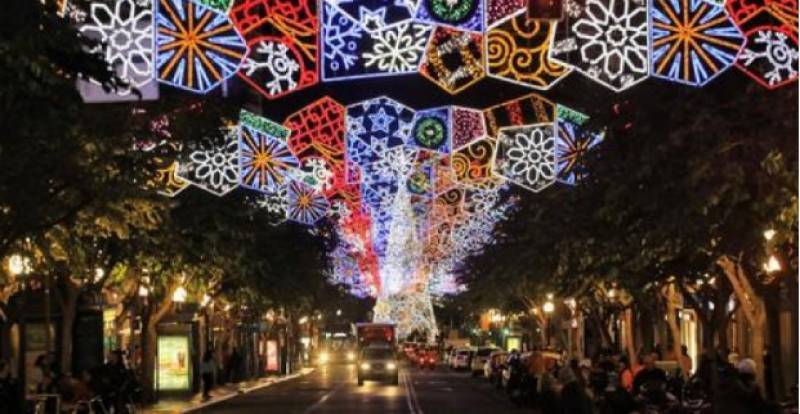 With just five weeks to go until Christmas, attention has turned to the big turn-on of festive lights across the province, and the capital itself does the honours this Friday November 18, albeit with reduced hours to save electricity.
With just five weeks to go until Christmas, attention has turned to the big turn-on of festive lights across the province, and the capital itself does the honours this Friday November 18, albeit with reduced hours to save electricity.Alicante city’s 2022 budget has been increased to incorporate more than two and a half million LED lights in more city streets and neighbourhoods than ever before, although the amount of time the bulbs are lit will be reduced in a bid to cut energy consumption by 30%.
With the exception of the main festival events, such as Christmas Day, the lights will only be turned on from 7pm until 12am during the week and will remain illuminated until 4.30am at the weekends.
And a new attraction this year is a huge 18-metre Christmas ball that will perform three lighting shows every night, along with other impressive large-scale decorations in key points throughout the city.
Andalucía
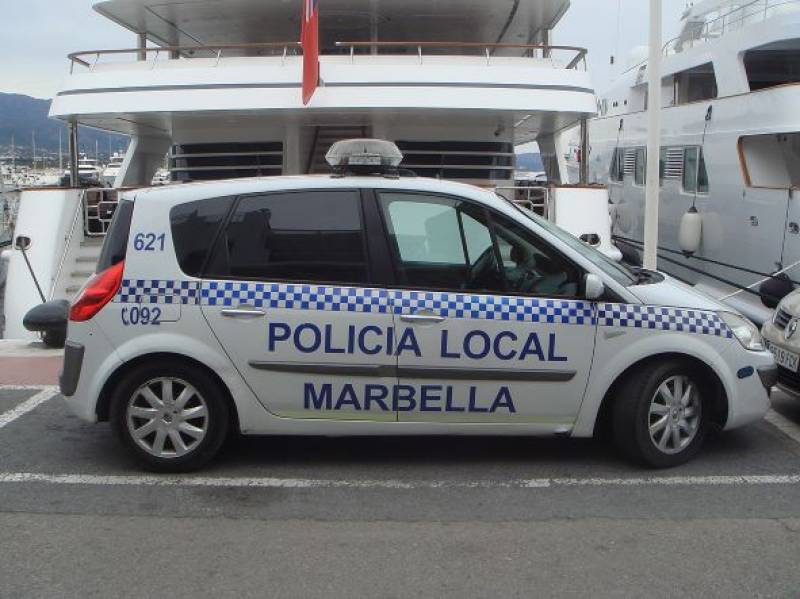 A group of five international residents were arrested in the upmarket resort of Puerto Banús in Marbella, Malaga last weekend on serious charges of false imprisonment, assault and possession of firearms in a dramatic episode like something out of a horror movie. The group – consisting of one Brit, one Irishman, one Iranian, one Moroccan and a 17-year-old boy from Finland – are accused of kidnapping two young women, a 16-year-old British girl and a 20-year-old Lithuanian woman, and tying them up naked in their house.
A group of five international residents were arrested in the upmarket resort of Puerto Banús in Marbella, Malaga last weekend on serious charges of false imprisonment, assault and possession of firearms in a dramatic episode like something out of a horror movie. The group – consisting of one Brit, one Irishman, one Iranian, one Moroccan and a 17-year-old boy from Finland – are accused of kidnapping two young women, a 16-year-old British girl and a 20-year-old Lithuanian woman, and tying them up naked in their house.It was around 5am on Sunday morning when police received a call from the friend of the English girl, who said the teenager had phoned her “crying and distressed” and claiming she was with several men who had weapons, before the line ominously went dead. When the friend tried to ring her back, she could only hear a man’s voice asking the tearful girl for the pin code to unlock her phone. That’s when she phoned the emergency services for help.
Police turned up at the Puerto Banús property to find the 16-year-old English girl and the Lithuanian woman both naked, wrapped in blankets and “very frightened” in one of the bedrooms of the house. While some of the officers freed the girls, others proceeded to chase down and arrest the five men in the house. One of them, the Brit, tried to jump from a wall to escape but ended up breaking his ankle.
He, along with the two victims, were transferred to hospital while the other four suspects, including the underage Finn, were taken to the police station. What’s more, upon searching the house, cops found a machete, pistol and submachine gun just lying on the table of the terrace, although the guns were later found to be replicas.
The two women who had been kidnapped later told police they had been in a nightclub and had a hazy memory of getting into a car with the men to go to their house, but could not remember anything else, and had most likely been drugged. According to evidence as the girls’ own testimony, no sexual assault had taken place, but the men are still under suspicion for that just in case. For now, though, the suspects have – incredibly – been released by a Marbella court pending further investigation.
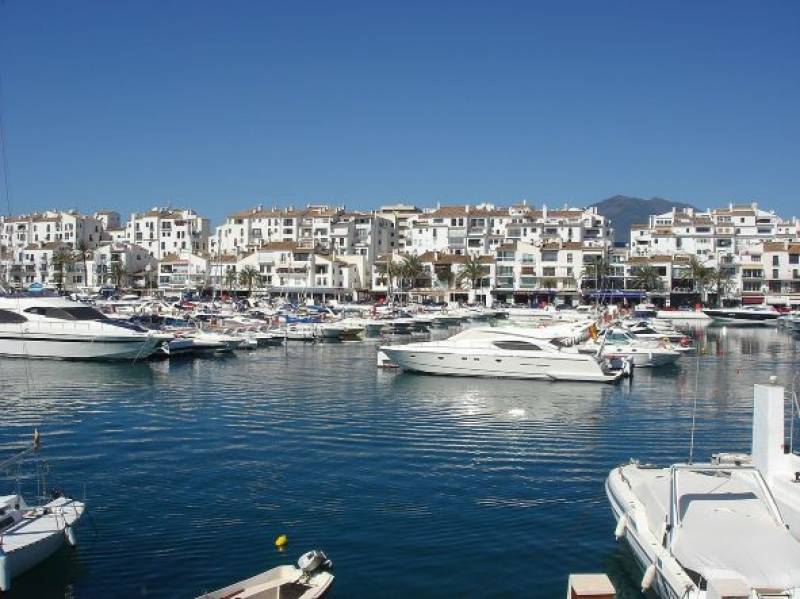
You may have missed…
- Sold: Famous abandoned Spanish Salto de Castro village already has a buyer.
The abandoned village of Salto de Castro in Zamora, which went on sale last week for 260,000 euros, has already been sold. - New high-speed train will reduce Murcia-Alicante journey to 50 minutes.
The development of the high-speed ‘Mediterranean Corridor’ rail line, connecting the Murcia Region with Alicante and Valencia, is progressing at full steam though it’s still a couple of years from completion. - Almost 45,000 Brits, locals and other tourists pack the streets for Benidorm Fancy Dress Party.
Benidorm was awash with colour and music as almost 45,000 people, the majority British, descended on for Benidorm Fancy Dress Party, now in its 25th year, although festivities were dampened somewhat when an Irishman was stabbed to death by his British flatmate. - Mallorca bites back at claims it doesn’t want British tourists.
Mallorca unleashed a media and political storm after implying that the island is no longer interested in welcoming budget UK tourists and would prefer more upscale holidaymakers from other parts of Europe, but they’re blaming The Sun newspaper of twisting their words. - Ziplining in the Region of Murcia: 4 suggestions for great outdoor adventure days in the Costa Cálida!
Here are the best adrenalin rushes for children and adults alike in some of the most spectacular scenery of Murcia.
There we are then. Thanks for reading this week, we’ll be back the next one for more.
See you next time!
Got a business in Spain? Advertise with us.
Murciatoday.com and its affiliated Spain Today Online sites can help bring your business to a wider audience – over 350,000 unique readers every month. We’ll provide you with custom-made banner ads, a personalised listing in our Business Directory and special feature articles about your particular business niche.
Don’t limit yourself to the yellow pages. Get online! After Covid, can you afford not to? Contact us today to find out how we can get wider exposure for your business.
Contact Spanish News Today: Editorial 966 260 896 /
Office 968 018 268

















